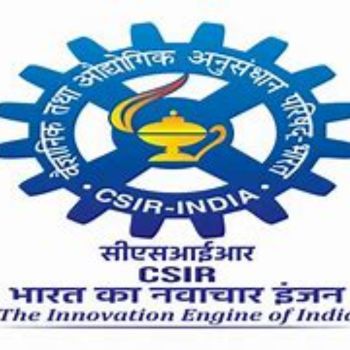PhD in Library and Information Science is the highest level doctoral research program for a period of 3-5 years, focusing on developing research and teaching skills in information science, knowledge management, digital libraries, and archival studies.
The eligibility criteria for the PhD Library and Information Science is that the candidate must have done a Master's degree in Library and Information Science or have an equivalent degree in the relevant field. The admission to this course is based on entrance tests such as UGC NET/CSIR NET/GATE. Students need to have a valid score in either of these exams.
The average course fees for the PhD in Library & Information Science range from INR 30,000 – 80,000 depending on the institute type. Some of the colleges offering the PhD Library and Information Science are Banaras Hindu University, Aligarh Muslim University, Panjab University, Sambalpur University, Indira Gandhi National Open University, Dravidian University, and Pondicherry University.
A PhD in Library and Information Science equips students with advanced knowledge in library management, information technology, and educational tools. The course provides students with the opportunity to work in academia, research institutions, government agencies, and corporate libraries. Some of the job roles available for them are Librarian, Web Content Strategist, Library Trainee, Technical Professional, Teacher, and Library Director
After earning a PhD in Library Science, students can pursue various job profiles such as Librarian, Web Content Strategist, Library Trainee, Technical Professional, Teacher, and Library Director. PhD holders in Library and Information Science can expect an average package in the range of INR 5 – 7 LPA.
Table of Contents
- PhD in Library & Information Science Highlights
- What is PhD in Library & Information Science?
- Why Study a PhD in Library & Information Science?
- Who Should Pursue a PhD in Library & Information Science?
- PhD in Library & Information Science Eligibility
- PhD in Library & Information Science Entrance Exams
- PhD in Library & Information Science Top Colleges
- PhD in Library & Information Science Admission Process 2025
- PhD in Library & Information Science Syllabus
- PhD in Library & Information Science vs PhD in Information Science
- PhD in Library & Information Science Jobs
- PhD in Library & Information Science FAQs
PhD in Library & Information Science Highlights
The basic details of PhD Library and Information Science are as follows:
What is PhD in Library & Information Science?
A PhD program in library and information science is a 2-3 year program that focuses on advanced research in the fields of knowledge organization, library science, and information management. The course provides learning about digital libraries, data curation, knowledge management, information technology, and information retrieval in general.
The course includes a strong emphasis on developing new ideas, theories, and techniques to enhance the gathering, arrangement, and sharing of information. This field provides scholars with leadership and research abilities as well as knowledge of information systems, cataloging, classification, metadata analysis, and digital preservation.
Why Study a PhD in Library & Information Science?
A PhD in library and information science provides students with various job opportunities in government agencies, businesses, research institutes, and academia. As the need for digital libraries, data management, and knowledge organization keeps on growing, the scope for the experts in this field will also keep on growing. The experts should know how to efficiently manage and handle the conservation of information.
Employment opportunities are provided to students for positions as research consultants, digital archivists, information analysts, university professors, and library directors. It guarantees effective access and use of knowledge in the digital age and gives everyone the chance to contribute to the development of information science.
Who Should Pursue a PhD in Library & Information Science?
Given below are some points on who should pursue a PhD Library and Information Science course:
- It is perfect for professionals who want to become university professors or academic researchers in the field of library science.
- For Librarians or information managers who want to take on leadership roles in large libraries, archives, or research institutions.
- For individuals who are interested in developing new information systems, cataloguing methods, or knowledge management techniques.
- Those who want to contribute to policy-making in information access, digital archiving, or public library development.
- Candidates who are passionate about preserving the cultural heritage through their advanced archival and documentation work.
PhD in Library & Information Science Eligibility
Students should have the following eligibility to take admission in PhD in Library and Information Science:
- The candidates must have a Master's degree such as Master of Library and Information Science or a related field with a minimum of 55% marks.
- Some universities take admission through entrance exams like UGC NET and CSIR NET.
PhD in Library & Information Science Entrance Exams
Some of the popular entrance exams for a PhD in Library and Information Science include UGC NET and CSIR NET.
PhD in Library & Information Science Top Colleges
Some of the top colleges for PhD in Library and Information Science, based on the NIRF Ranking 2024, are as follows:
PhD in Library & Information Science Admission Process 2025
The admission to the PhD in Library and Information Science is based on the entrance exam scores. Students need to have a valid entrance exam score in CSIR NET/UGC NET/GATE in order to pursue the course.
For your reference, given below is the step-by-step admission process for the ISBM University, Chhattisgarh.
Step 1: Start by visiting the official website of the ISBM University. Students need to navigate to the Programs section of the website.
Step 2: Click on the Section of “School of Library and Information Science, then click on the Doctoral program offered by the university.
Step 3: The website will redirect you to the course page. Now, student can apply online by simply clicking on the Apply Now button.
Step 4: Student need to fill out an application form through which they’ll be submitting their personal and academic information.
Step 5: After submitting the application form, student need to upload the required documents in order to process the application further. After submitting the documents, it’s time to make the fee payment using the provided options. The university might conduct a GD round to discuss your research thesis.
Step 6: After successfully paying the fees, student will receive an official mail which will include the orientation date and Commencement date of the program.
Documentation Required
- Master’s, Bachelor’s, 12th, 10th Marksheet.
- Photocopies of Mark Sheets & Certificates
- Four Latest Photographs
- Identity Proof
- Address Proof
- Work Experience Certificate, if any
PhD in Library & Information Science Syllabus
The PhD Library and Information Science syllabus spans for 3-5 years. PhD is a research based doctoral level program, through which students mostly do research on their thesis.
For your reference, given below is the PhD in Library & Information Science syllabus followed at Central University of Tamil Nadu.
*Later semesters include working on thesis, Viva-Voce, and Writing Proposal.
PhD in Library & Information Science vs PhD in Information Science
Given below is the detailed course comparison for the PhD Library and Information Science Vs PhD in Information Science course:
PhD in Library & Information Science Jobs
There are various job roles available for PhD holders in Library and Information Science. As per Payscale, the average package of various job roles according to the years of experience are mentioned in the table below:
PhD in Library & Information Science FAQs
What are the key research areas in Library and Information Science PhD programs?
Topics include digital libraries, knowledge management, information retrieval, archival studies, and data curation are the focus of PhD programs in library and information science. In information science, researchers also investigate developing technologies, digital preservation, and information ethics.
What are the key skills and knowledge areas covered in the PhD program in Library and Information Science?
PhD students gain expertise in research methodologies, data analysis, and digital information management. They also develop skills in knowledge organization, metadata analysis, and information retrieval systems. The course also enhances critical thinking, academic writing, and teaching abilities.
What are the unique challenges faced by students during PhD in Library & Information Science?
PhD students often face challenges like conducting extensive research, managing large datasets, and keeping up with rapidly evolving technology. Writing a dissertation and publishing research papers require strong analytical and writing skills.
How do the research methodologies taught in the PhD program apply to real-world scenarios?
Research methodologies help in designing better information retrieval systems, improving digital libraries, and enhancing user experience. Data analysis techniques support decision-making in libraries and information centers. Qualitative and quantitative research methods are used to study user behavior and improve library services.











